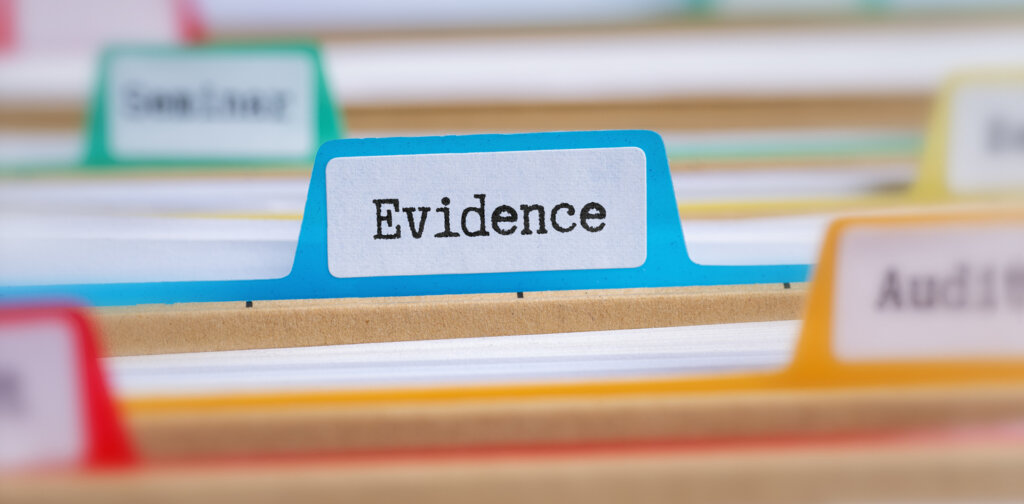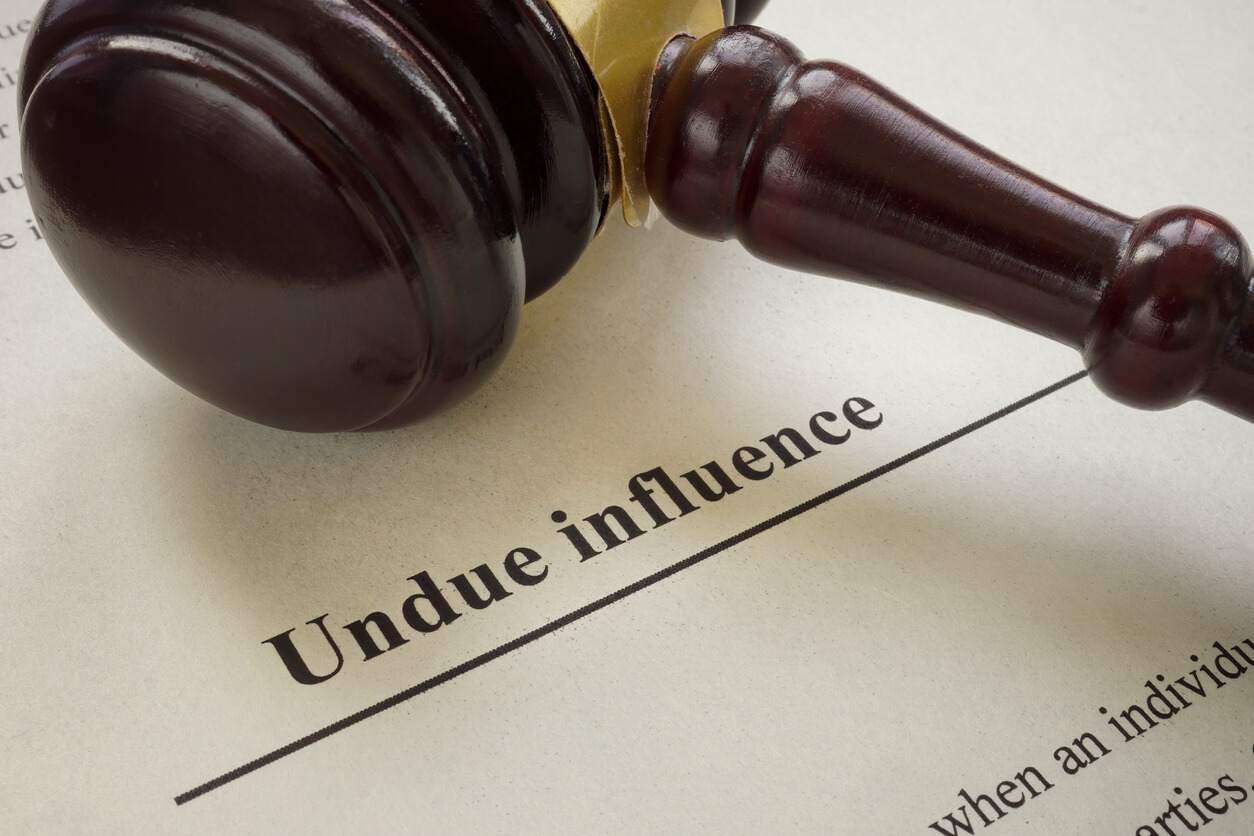Wills and trusts are important estate planning documents that allow individuals to decide what happens to their property after they die. In some cases, however, these instruments do not accurately represent the wishes of the deceased. Undue influence occurs when someone in a position of trust or authority takes advantage of an individual to obtain all or a portion of their estate wrongfully.
Undue influence is a serious challenge to raise against a will or trust. If successful, the document may be invalidated. For that reason, when proving undue influence, extraordinary evidence must be presented, which means having an excellent probate litigation attorney by your side. If you suspect that undue influence affected an estate plan, or you have been accused of exercising undue influence, the attorneys of Loew Law Group can help.
What Is Undue Influence?
California’s Welfare and Institutions Code defines undue influence as “excessive persuasion that causes another person to act or refrain from acting by overcoming that person’s free will and results in inequity.” This goes beyond merely persuading someone to leave a piece of real estate to a nephew or include a distant cousin as a trust beneficiary. Undue influence means coercing someone to the point that their free will is canceled out and they make a decision they otherwise would not have made.
Proving Undue Influence
By statute, consideration is given to a broad range of factors involving the victim and the influencer. In determining whether an individual has exerted undue influence over a testator (one who makes a will) or settlor (one who makes a trust), the courts may examine four factors:
1. The vulnerability of the victim
Evidence of this may include the victim’s:
- Incapacity
- Illness
- Disability
- Injury
- Age
- Education
- Impaired cognitive function
- Emotional distress
- Isolation
- Dependence
2. The influencer’s apparent authority over the victim
To show this, one may demonstrate the influencer’s status as a:
- Fiduciary (person who serves in a trusted financial role, such as an executor, trustee, or accountant)
- Family member
- Care provider
- Healthcare professional
- Legal professional
- Spiritual adviser
- Expert
3. The actions or tactics used by the influencer
Evidence of bad behavior on the part of the influencer may include the following, when used to obtain benefits improperly:
- Controlling basic requirements of life such as medication, transportation, the victim’s interactions with others, access to information, or sleep
- Use of affection, intimidation, or coercion
- Changing the victim’s personal or property rights, especially when such changes are accompanied by haste, secrecy, inappropriate times and places, and claims of expertise
4. Unfairness of the resulting will or trust
To decide whether the estate planning document is unfair, the court may look at:
- Economic consequences to the victim
- Any change from the victim’s prior intent or course of conduct, including prior estate planning documents
- The relationship of the value given by the victim to the value of any services or consideration received
- Whether the change is appropriate in light of the length and nature of the relationship
Do I Need Direct Evidence?

It is rare to have direct evidence of undue influence over a testator or settlor, such as an explicit admission of wrongdoing. That is why the above factors, all of which are circumstantial in nature, cover such a broad array of potential evidence. Additional proof may be considered as well.
In isolation, for example, a single piece of evidence may not reveal very much. But taken together with other evidence, it may be possible to show a pattern of conduct and circumstances whereby somebody exerts undue influence. The key is to have an experienced probate attorney who understands the big picture and can give proper context to all of the evidence.
In some cases, a person receiving a gift through a will or trust is presumed to have committed undue influence or fraud. These are situations that may appear suspicious based on the relationship between the testator or settlor and the person receiving the gift. An example would be if the person who drafted the will or trust also receives a benefit from it. Another example would be where a caregiver provides services to the victim close in time to when the victim makes the changes to his or her estate plan benefitting the caregiver.
What Evidence Is Likely Insufficient for Proving Undue Influence?
Merely disliking the provisions of a will or trust is not enough to show undue influence. Not liking or approving of a beneficiary is also insufficient. The person executing the estate plan has the right to choose beneficiaries and to decide who gets what – provided, of course, that the decision really is the product of free will. A probate attorney will objectively evaluate claims of undue influence and advise you as to whether you have a case.
What Should I Do If I Suspect Undue Influence?
A case of undue influence violates the rights of the testator or settlor; it jeopardizes the rights of beneficiaries, heirs, and family members.
If you believe there may have been a victim of undue influence, you may need to petition the probate court for a review of the will or trust and the circumstances surrounding it. These cases are governed by specific procedural and evidentiary rules, so consult a qualified probate litigator.

What Steps Should I Take if I Am Accused of Undue Influence?
Similarly, being accused of undue influence can have serious consequences. A person determined to have exerted such an influence on someone may be disinherited, and may be held liable for other damages. They may even face criminal penalties for their actions, depending on the facts of the case.
If you are accused of committing undue influence you may need to successfully rebut the evidence presented by your adversaries. Again, you will want to consult a qualified probate litigator to assist you if you are facing such accusations.
Contact Our Undue Influence Attorneys Today
No matter which side you find yourself on, undue influence cases have significant repercussions for all parties involved. You deserve the trusted experience of Loew Law Group, PLC. Let our team explain your legal rights and lay out what course of action best suits your needs. Give us a call today to set up a consultation.

